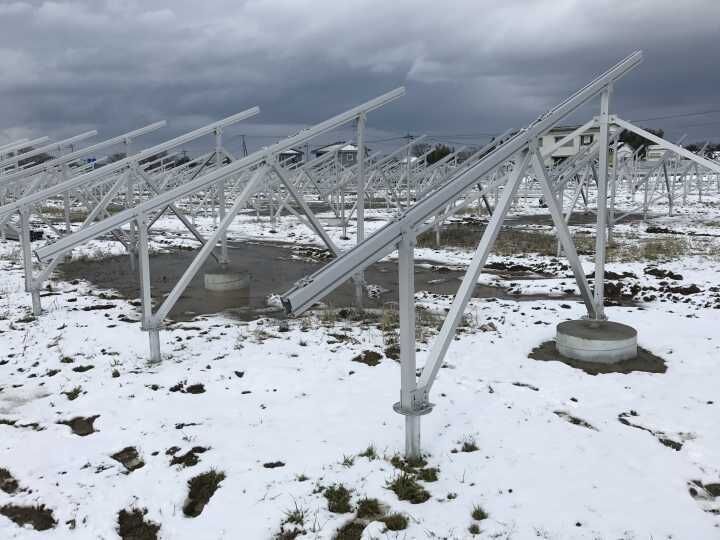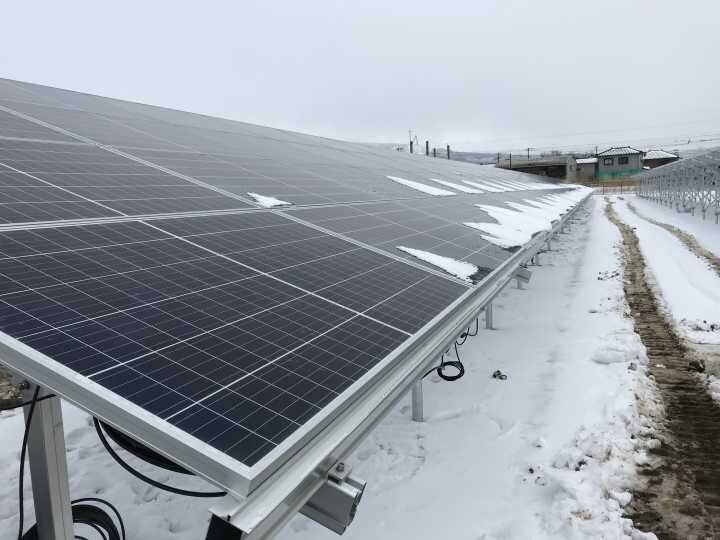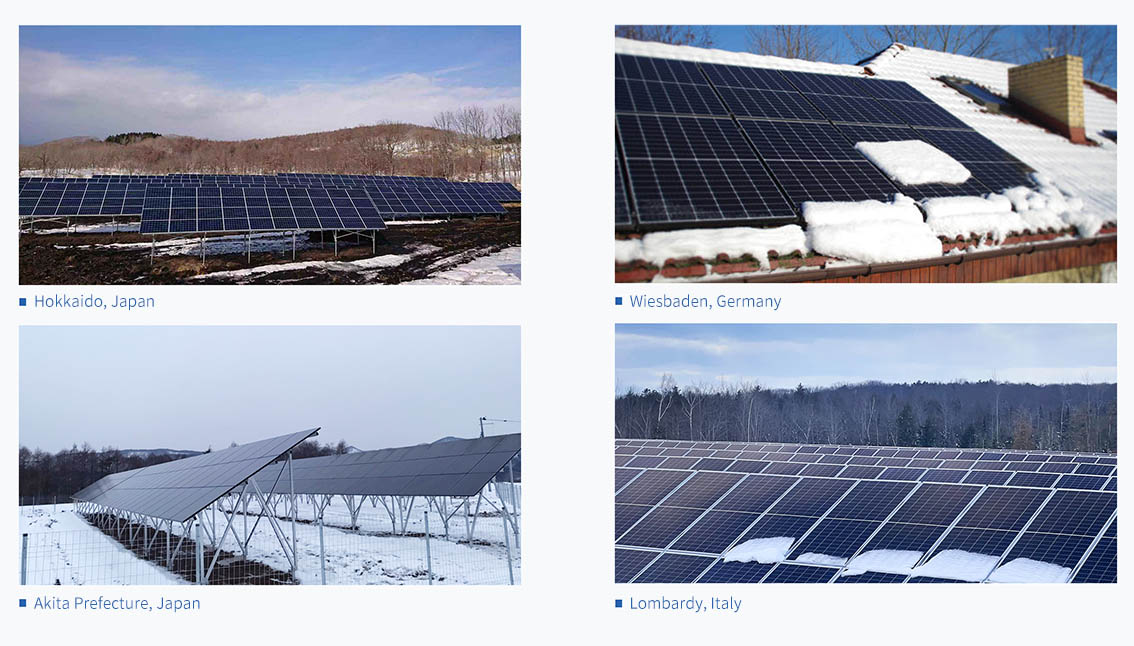As the deep winter sets in, snow accumulation has become a major challenge for the operation of solar power plants. Snow not only covers solar panels, reducing their sunlight absorption efficiency, but can also affect the structural stability of the plant during extreme snowstorms. Therefore, in cold regions with frequent snowfall, solar power plants must adopt specific design and maintenance strategies to ensure efficient and stable operation.
During heavy snowstorms, snow accumulation on panel surfaces may lead to structural collapses. To effectively reduce snow buildup, the tilt angle of the PV mounting systems should be appropriately increased. A steeper angle helps snow slide off naturally under gravity, improving the efficiency of post-snow cleaning. Additionally, there should be sufficient clearance between the panels and the PV mounting system to prevent excessive snow accumulation from affecting normal operation.

Before the snow season arrives, it is essential to conduct a comprehensive inspection of the structural stability of the solar PV mounting. Pay close attention to the foundation of the mounts, ensuring they are secure and free from looseness or deformation. For areas prone to water accumulation, such as panel edges and mount connections, consider inclined installation or adding drainage holes to ensure proper water flow. This prevents ice formation that could exert additional pressure on the mounts.
During snowfall, it is crucial to promptly remove snow from the panel surfaces. Excessive snow accumulation not only reduces power generation efficiency but may also lead to water infiltration and freezing inside the panels. If the snow has already turned to ice, avoid using hot water to forcefully melt it, as the uneven temperature could cause irreversible damage to the panels. The correct approach is to wait for the ice to melt naturally before cleaning.

To better tackle the challenges posed by winter snow, consider implementing intelligent monitoring systems. These systems can monitor snow accumulation and power generation efficiency in real time, enabling quick detection and resolution of potential issues. Installing solar tracking systems can also help by automatically adjusting the tilt angle during snowy weather, minimizing the impact of snow on solar power plants.

Advantages of Huge Energy Solar PV Mounting Structures
Huge Energy solar PV mounting structures feature carefully selected materials, such as corrosion-resistant aluminum alloys, high-strength steel products and top-quality stainless steel bolt sets. Precision machining ensures durability in varied environments.
Before constructing a solar plant, we design a reliable PV mounting system and connection method tailored to the specific wind speeds and snow loads of the location. This enhances the structure's ability to withstand crosswinds to ensure the overall stability. Our custom design service optimizes installation angles and minimizes shading losses, maximizing energy capture.
We offer 10-15 years of quality assurance and 25-years design life. Our "safety-first" engineering strategy has resulted in a decade of accident-free operations. Count on us for professional services from consultation through installation to ongoing maintenance.
We stand by our commitment to effective energy solutions and sustainable development. And we meet your expectations in every aspect and get your investment to the maximum return.
